Auto logout in seconds.
Continue LogoutEscape the summer heat—and social isolation—with one of these suggestions from Advisory Board's experts. They offer seven recommendations on what you should read now to learn from the past, cultivate leadership, and address racial inequity.
In shock: My journey from death to recovery and the redemptive power of hope, by Rana Awdish
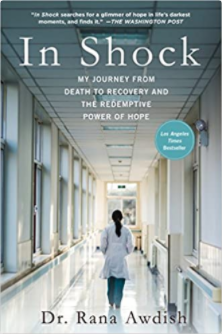
Shay Pratt, Executive Director, Research
Dr. Awdish is a critical care physician at Henry Ford Health System who in 2008 experienced a sudden and severe medical crisis. This book is not just a powerful memoir of her illness and recovery (although it is certainly that). It is also an important examination of clinician-patient communication and how the absence of empathy can get in the way of healing, coping, and processing. Through her experience, the author identified gaps in her training and then took action. Dr. Awdish includes lessons essential for both physicians and clinicians as well as future patients.
Not convinced yet? Check out this short video: Dr. Awdish will sell you on the book better than I can.
Race, work, and leadership: New perspectives on the black experience, edited by Laura Morgan Roberts, Anthony J. Mayo, and David A. Thomas
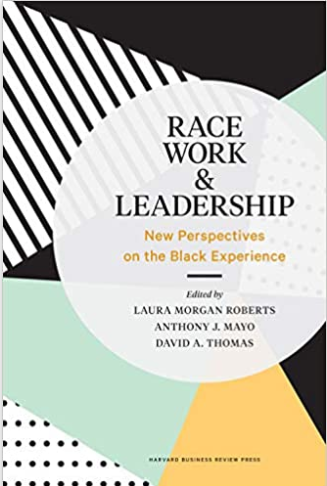
Craig Pirner, Managing Director, Talent Division
The book is a collection of essays that explores what it's like to be Black in corporate America. The essays are scholastically rigorous and also, in many cases, personal.
The book is broken up into five sections, each of which provides a rich way to learn and listen. The first section outlines the history of and critical questions in Black business leadership. The second, focused on comparative studies, prompts a lot of thinking about how the metrics used to evaluate workplaces today may need re-thinking to be more inclusive. The third section dives into lived experiences and narratives, including an insightful chapter on developing and retaining diverse talent in the health care professions. Section four theorizes Black leadership, challenging mainstream management theory through lenses such as intersectionality. The fifth and last section examines the unique experience of Black millennials and suggests what is most important to focus on when cultivating leaders of that generation.
My thoughts aside, the editors themselves may summarize the book best: They express hope that their work is "beneficial for individuals trying to assert and maximize their leadership potential, for organizations trying to leverage and optimize their diverse talent," and for people who "seek to better understand the key questions that remain about Black leadership."
Changing on the job: Developing leaders for a complex world, by Jennifer Garvey Berger
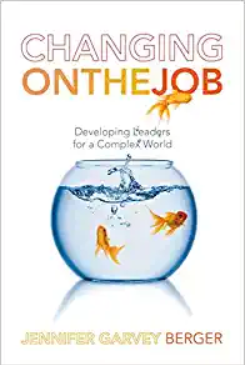
Matt Cornner, Managing Director, Talent Development
Often, leadership development centers on mastery of technical skills or tools. However, rarely do we question whether leaders possess the emotional intelligence and mindset to effectively use these tools in a complex world. Jennifer Garvey Berger tackles this question head on in her book, contending that leaders lack not the technical skills to lead (such as mastery of communication, change management techniques, operations, finance and strategy) but rather the mindset that allows them to navigate complexity, particularly human complexity, in a rapidly changing world.
When leading change and transformation, or leading through crisis, leaders are frequently challenged to hold multiple purposes and perspectives, often in tension with one another. Berger argues that a leader's ability to do so requires a "qualitative shift, not just in knowledge, but in perspective or way of thinking." Accordingly, she outlines four different stages of adult development, or "forms of mind," that adults can sequentially develop and that represent qualitative shifts in ways of thinking. The implications for how we think about leadership, and about developing leaders, are profound as we consider an approach that centers less on what a leader "does" and more on how a leader "shows up."
The Ghost Map: The Story of London's Most Terrifying Epidemic--and How It Changed Science, Cities, and the Modern World, by Steven Johnson
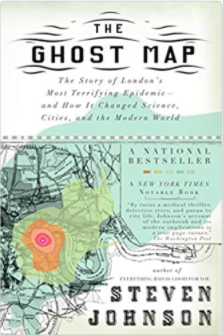
Thomas Seay, Senior Director, News Division
"The most terrible outbreak of cholera which ever occurred in this kingdom, is probably that which took place in Broad Street, Golden Square, and the adjoining streets, a few weeks ago."
That's how John Snow, the pioneering physician and epidemiologist, opened his monograph about the 1854 London cholera outbreak—and he wasn't exaggerating. The disease killed more than 500 people within a few city blocks in just over a week. As Snow wrote, "The mortality in this limited area probably equals any that was ever caused in this country, even by the plague."
Steven Johnson's The Ghost Map is a chilling recounting of that outbreak. But it's also much more: an intellectual biography of Snow, his allies and rivals, and the miasma theory of disease; a microbial biography of Vibrio cholerae; an urban history and ethnography of Victorian London; a tribute to a world-changing infographic; and a frankly off-putting investigation of how human waste nearly suffocated 19th-century cities, overflowing into public spaces in ways that now feel revolting.
More than anything else, though, The Ghost Map is a scientific detective story. It describes how Snow and his unlikely friend Henry Whitehead, through painstaking contact-tracing and shoe-leather epidemiology, proved that cholera was not transmitted via atmospheric "miasma," as believed by their contemporaries, but via contaminated drinking water. (It's also a taut, novelistic read—at least until its rather meandering epilogue.)
If I'd picked up this book when it was published in 2006, I might have regarded Broad Street's residents as impossibly far removed from modern life. Not so in the Covid-19 era: It's all too easy to feel a kinship with them, living amid an unseen killer they can only barely comprehend.
But if that kinship inspires a certain dread, it also sparks hope. The scientific method cracked the case of the Broad Street outbreak, and it illuminated a broader theory of disease that has saved millions, if not billions, of lives since.
It hasn't conquered the new coronavirus yet. But to read The Ghost Map is to glimpse how, someday in the near—if still painfully distant—future, it almost surely will.
The Vanishing Half, by Brit Bennett
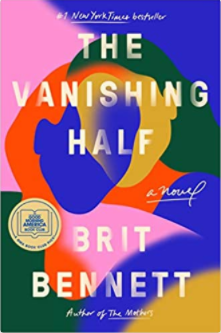
Deirdre Saulet, Practice Manager, Oncology Roundtable
I am a huge fan of fiction, and novels have provided a much-needed escape for me this year. One of the best books I've read is The Vanishing Half by Brit Bennett. The story navigates the divergent paths of twin sisters in Louisiana—both of whom run away to New Orleans after their father's lynching. Although both are light-skinned Black women, one sister constructs a life for herself passing as white, while the other marries a Black man and thus sets off on a very different path.
The novel jumps around between characters and decades, and it kept me enthralled the whole time—conflicted between voraciously tearing through the entire book in a couple of days and slowing down to make this escape last a little longer.
The Sellout, by Paul Beatty
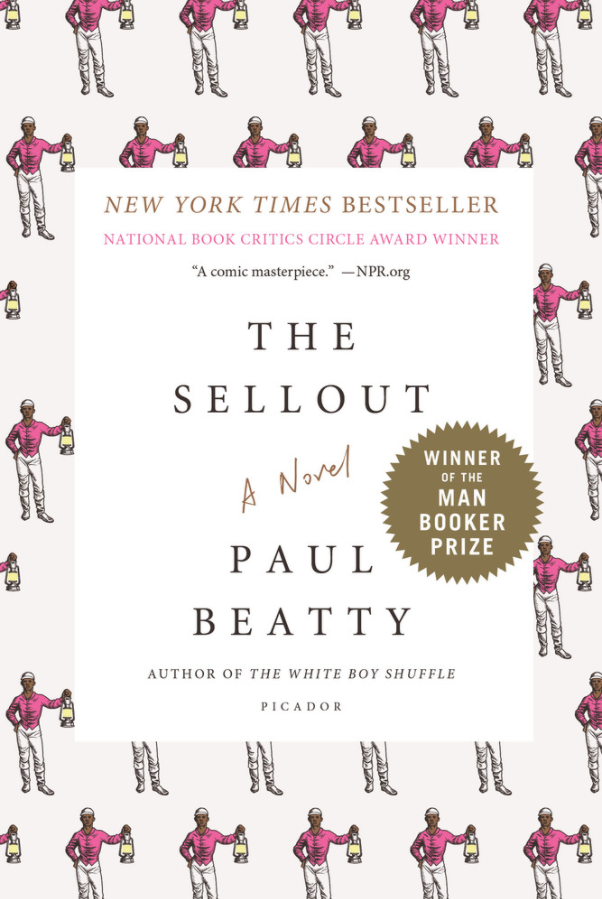
Darby Sullivan, Consultant
I don't know that I've ever read a book that's inspired such visceral reactions in me as Paul Beatty’s The Sellout. After two years, I still remember my emotional whiplash from this masterful satire that won the Man Booker prize in 2016. Beatty tackles serious issues of racial injustice—such as segregation, police violence, and the bootstraps myth—throughout the story of a modern-day Black man who (here it goes) is arrested for owning a slave. It's gutsy, biting, and hilarious. But more importantly, the novel forces its readers to take a hard look at our culture's own dark absurdity and see it for what it is.
Salt Sugar Fat, by Michael Moss
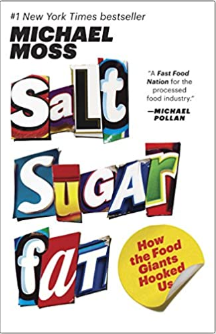
Heather Bell, Editor-in-Chief, Daily Briefing
Summer is often the time people recommit to their New Year's resolution to adopt a healthier lifestyle and work for that ultimate beach body—but if you're like me, you've spent the bulk of your summer isolating, and the closest you've come to the beach is watching Beachfront Bargain Hunt on TV. Since there's no beach incentive to stop my quarantine diet of takeout, chips, and peanut M&Ms, I picked up Michael Moss' Salt Sugar Fat.
In the book, Moss explores the methodical approach the food industry takes to creating processed and packaged foods. I doubt it's a secret to anyone reading this that the food industry spends millions on advertisements and research to ensure we continue purchasing our favorite snacks. However, Moss' inside look at the industry's scientific approach to food creation made me question why I like the foods I like.
Yes, Moss explains that our bodies are designed to love sugar. But the food industry has spent millions moving Americans' sugar threshold higher and higher. If you want a reason to question why you continue eating your favorite snack even when you're full, or you just want a refresher into what exactly is going into the bulk of your local grocery stores items, pick up Moss' book. It may be the inspiration you need when you're stuck indoors surrounded by snacks.
Don't miss out on the latest Advisory Board insights
Create your free account to access 1 resource, including the latest research and webinars.
Want access without creating an account?
You have 1 free members-only resource remaining this month.
1 free members-only resources remaining
1 free members-only resources remaining
You've reached your limit of free insights
Become a member to access all of Advisory Board's resources, events, and experts
Never miss out on the latest innovative health care content tailored to you.
Benefits include:
You've reached your limit of free insights
Become a member to access all of Advisory Board's resources, events, and experts
Never miss out on the latest innovative health care content tailored to you.
Benefits include:
This content is available through your Curated Research partnership with Advisory Board. Click on ‘view this resource’ to read the full piece
Email ask@advisory.com to learn more
Click on ‘Become a Member’ to learn about the benefits of a Full-Access partnership with Advisory Board
Never miss out on the latest innovative health care content tailored to you.
Benefits Include:
This is for members only. Learn more.
Click on ‘Become a Member’ to learn about the benefits of a Full-Access partnership with Advisory Board
Never miss out on the latest innovative health care content tailored to you.
